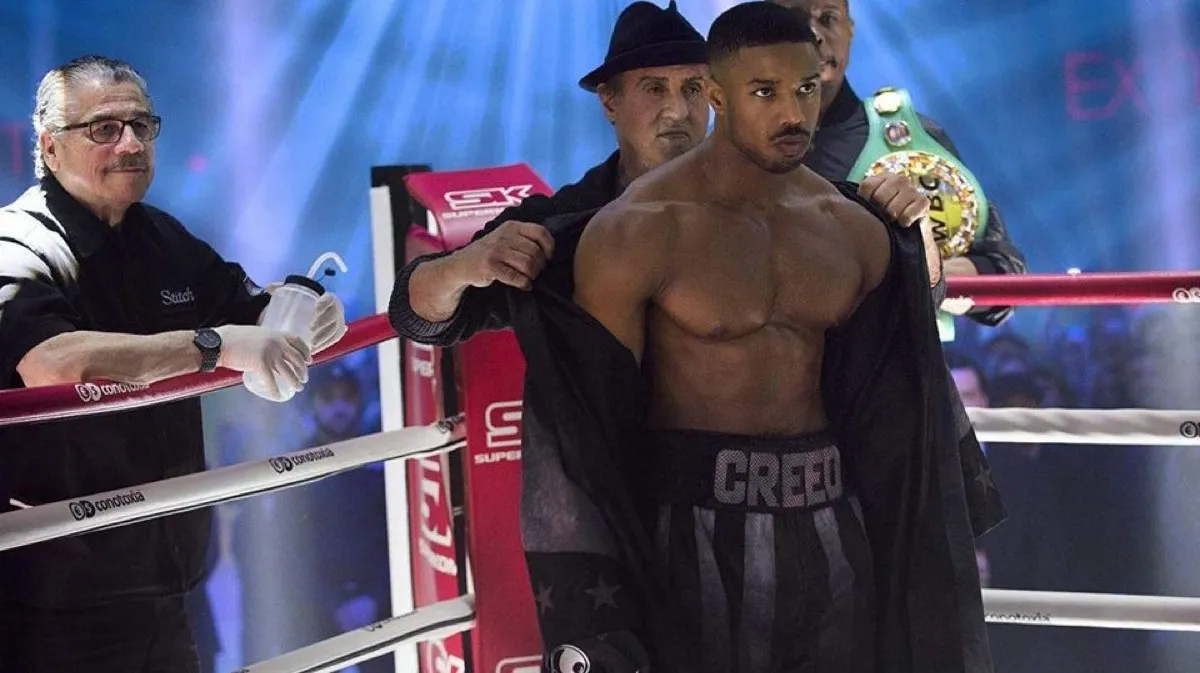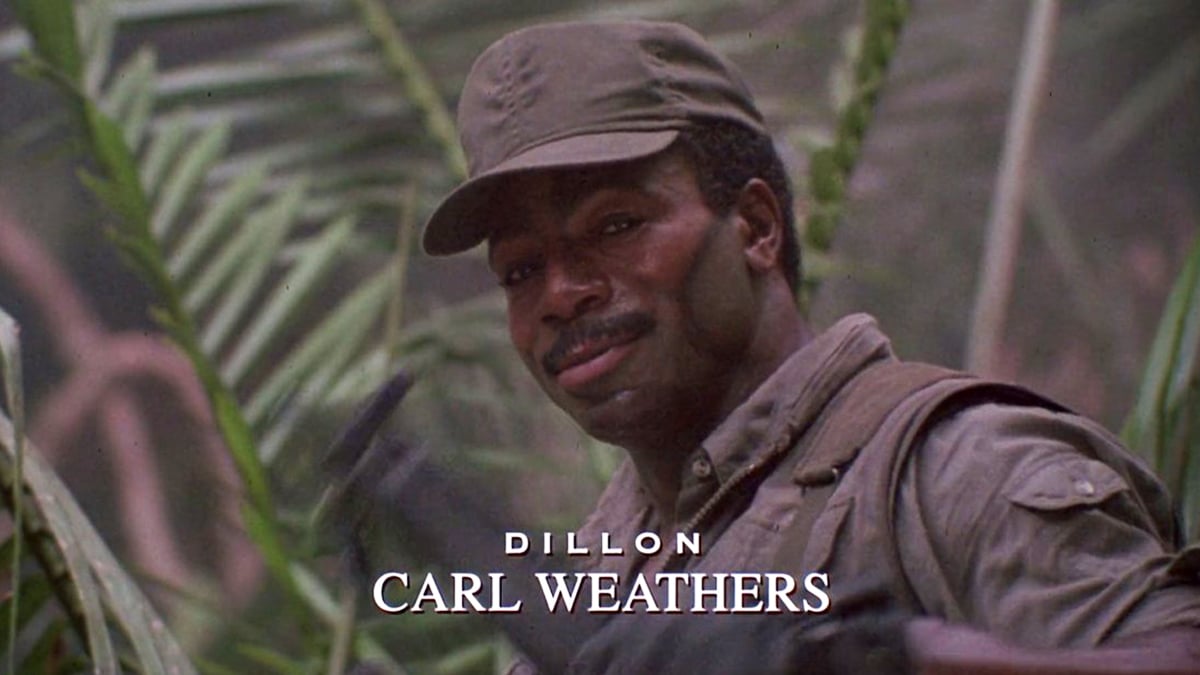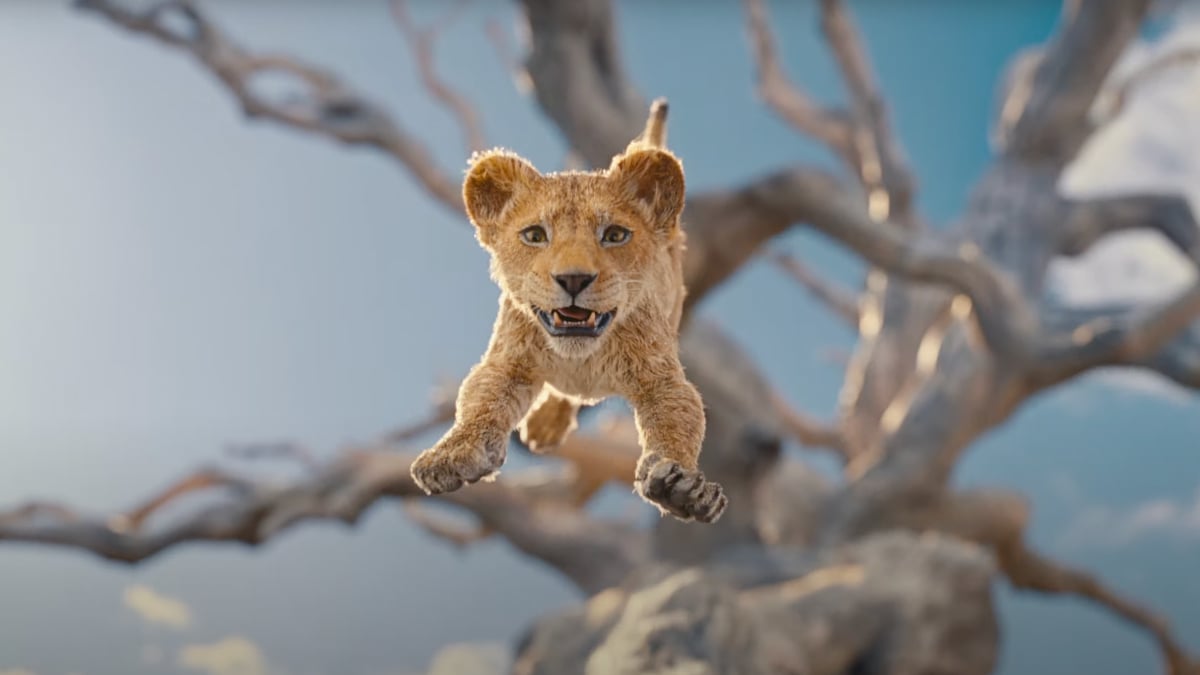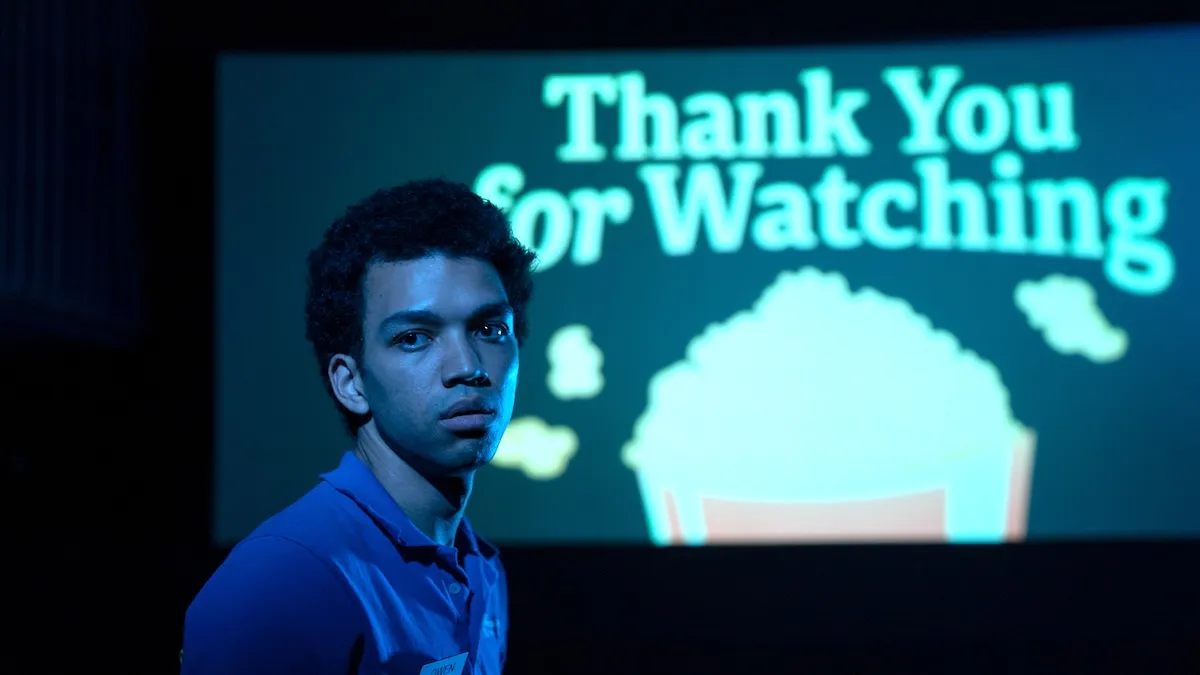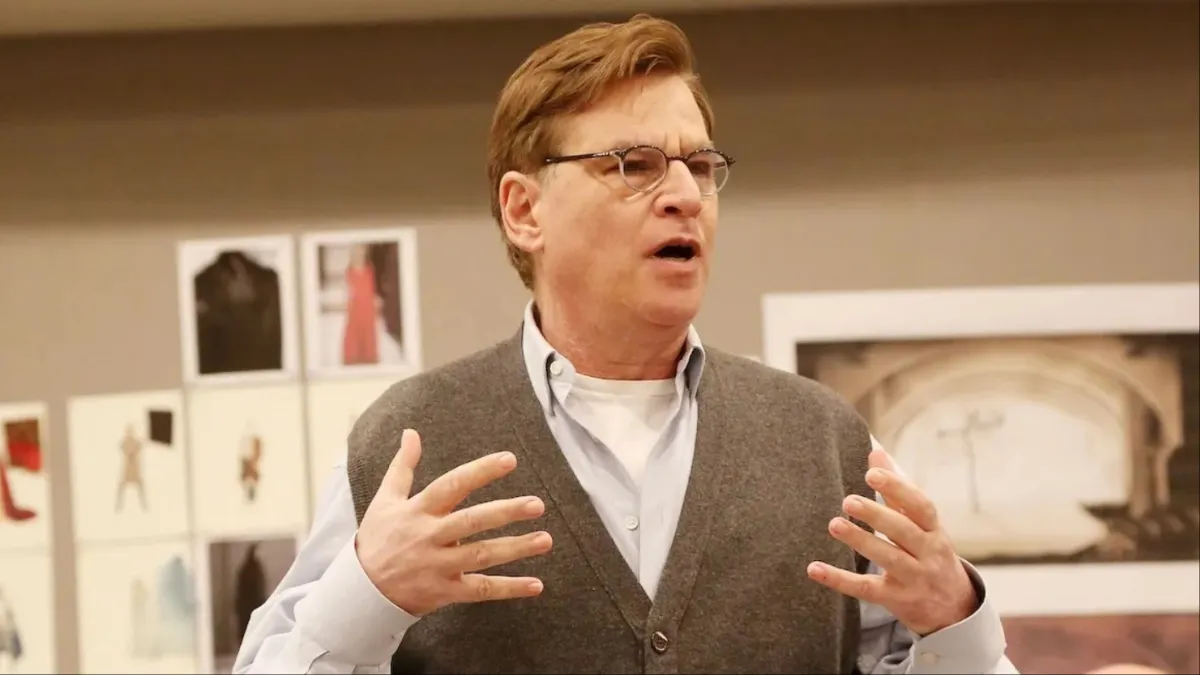Rocky, birthed from the underdog dreams of Sylvester Stallone in 1976, teaches us that with enough trumpets and training, anyone can sprint up a set of stairs and punch their way to glory.
This franchise follows the story of Rocky Balboa, a struggling boxer whose most lethal weapons were his heart and an uncanny ability to take a punch. Over the years, Rocky has fought more than just opponents in the ring; he’s duked it out with personal demons, the ravages of time, and even the Cold War.
Each Rocky film is a love letter to the underdog and reflects its time, evolving from a story of personal triumph to a saga about legacy and ultimately passing the mantle to Creed’s Adonis, a young boxer with a name that’s Greek for “God” but a left jab that’s pure Philly. For your viewing pleasure, here is a rundown of every Rocky film, from the first to the most recent.
Rocky (1976)
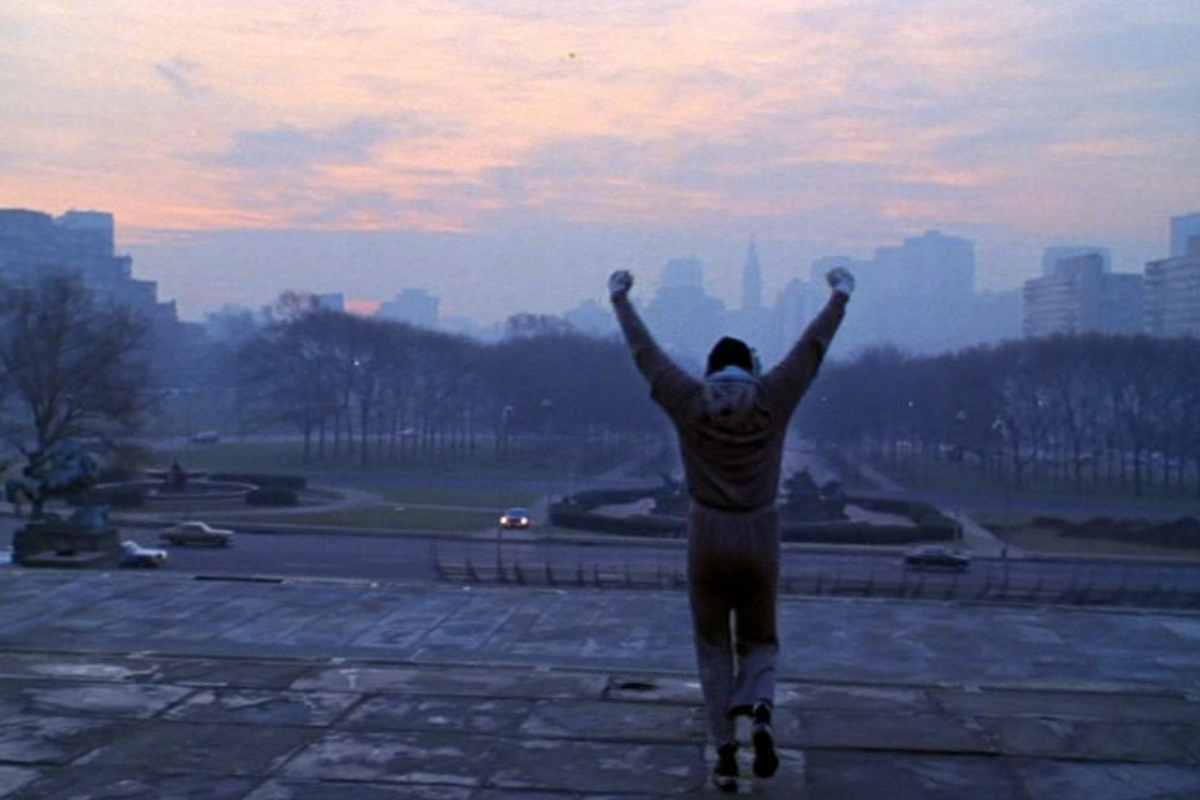
Rocky, the film that turned jogging in gray sweatpants into a national pastime, is more than just a boxing movie; it’s a lesson on how to make punching meat metaphorically resonant. Directed by John G. Avildsen and scripted by a then-unknown Sylvester Stallone, this cinematic underdog mirrors its protagonist—a little rough around the edges but with a heart of gold (and fists to match).
The story follows Rocky Balboa, a down-on-his-luck boxer from Philadelphia. When not tenderizing beef in a meat locker or courting Adrian, the shy pet store clerk, he’s running up the steps of the Philadelphia Museum of Art, turning a simple cardio workout into an iconic moment of triumph. The film had modest expectations but landed a knockout punch at the box office and the Oscars.
Rocky II (1979)
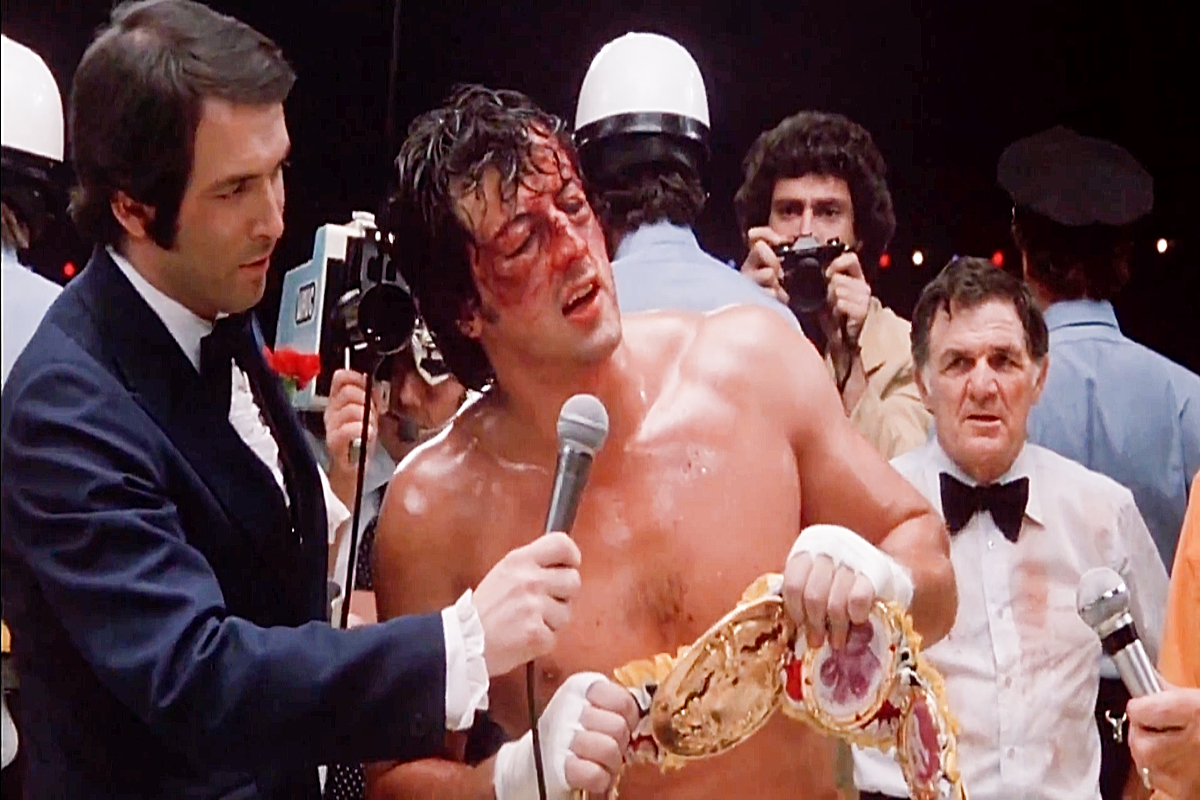
The sequel, Rocky II, asks the crucial question: “What if we did it all over again, but this time he wins?” The story follows our beloved pugilist, Rocky Balboa, fresh off his loss (but moral victory) from the first film, trading his boxing gloves for domestic bliss and ill-fated commercial gigs. Directed with gusto by Sylvester Stallone himself, the film straddles the line between a heartfelt sports drama and a class on how not to deal with your newfound fame.
As Rocky grapples with his sudden popularity, love for Adrian, and inability to read cue cards, we’re treated to a narrative as subtly layered as Rocky’s training regimen is not. Meanwhile, Apollo Creed, fueled by the kind of resentment only available to those publicly upstaged, lures Rocky back to the ring with the finesse of a Shakespearean antagonist.
Rocky III (1982)
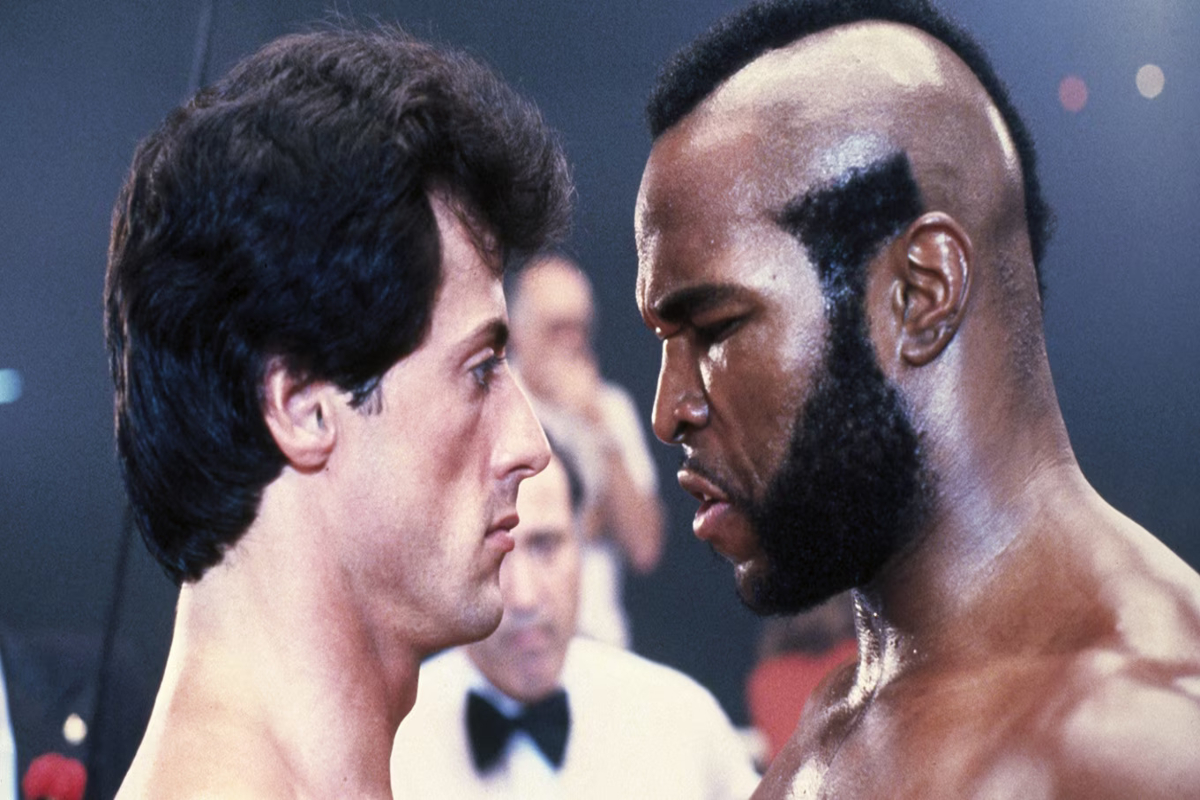
The third round in the Rocky saga packs a punch with more glitz, glam, and Mr. T than one might reasonably expect from a boxing film. In this installment, directed again by star Sylvester Stallone, Rocky Balboa, having now tasted the sweet nectar of success, faces the classic dilemma of any champion: becoming complacent in his tiger-striped trunks.
Enter Clubber Lang, played by Mr. T, in a performance that is equal parts raw power and Mohawk-driven charisma, challenging Rocky physically and sartorially. Having lost his edge (and his beloved coach, Mickey), Rocky finds an unlikely ally in former rival Apollo Creed, who teaches our hero a thing or two about rhythm, footwork, and beach running. Rocky III serves ’80s excess and sports drama tropes: There are montages within montages, each more sweat-soaked and synth-heavy than the last.
Rocky IV (1985)
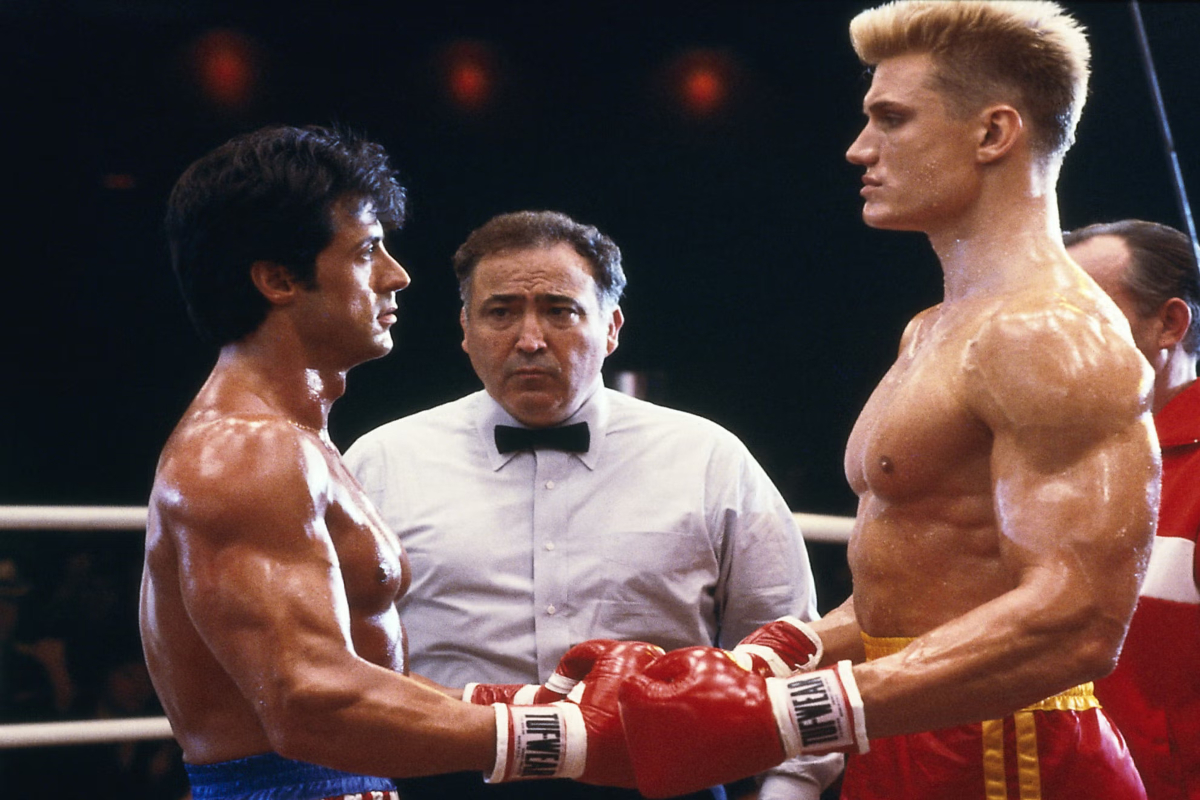
Rocky IV, the cinematic equivalent of a Cold War allegory with boxing gloves, punches way above its weight in terms of sheer ’80s extravagance. This time, director and star Sylvester Stallone takes the franchise to new, frosty heights as Rocky Balboa faces his most formidable (and stoically Soviet) opponent yet: Ivan Drago, a towering mass of muscle and monosyllables played by Dolph Lundgren.
In what can only be described as a geopolitical slugfest, Rocky isn’t just fighting for personal glory but, seemingly, for the pride of the entire Western world. The film’s plot unfolds like the world’s most intense game of international relations. Drago, the human embodiment of the Iron Curtain, delivers blows as cold and hard as the Siberian tundra, leading to a heart-wrenching tragedy that propels Rocky into the ring.
Rocky V (1990)
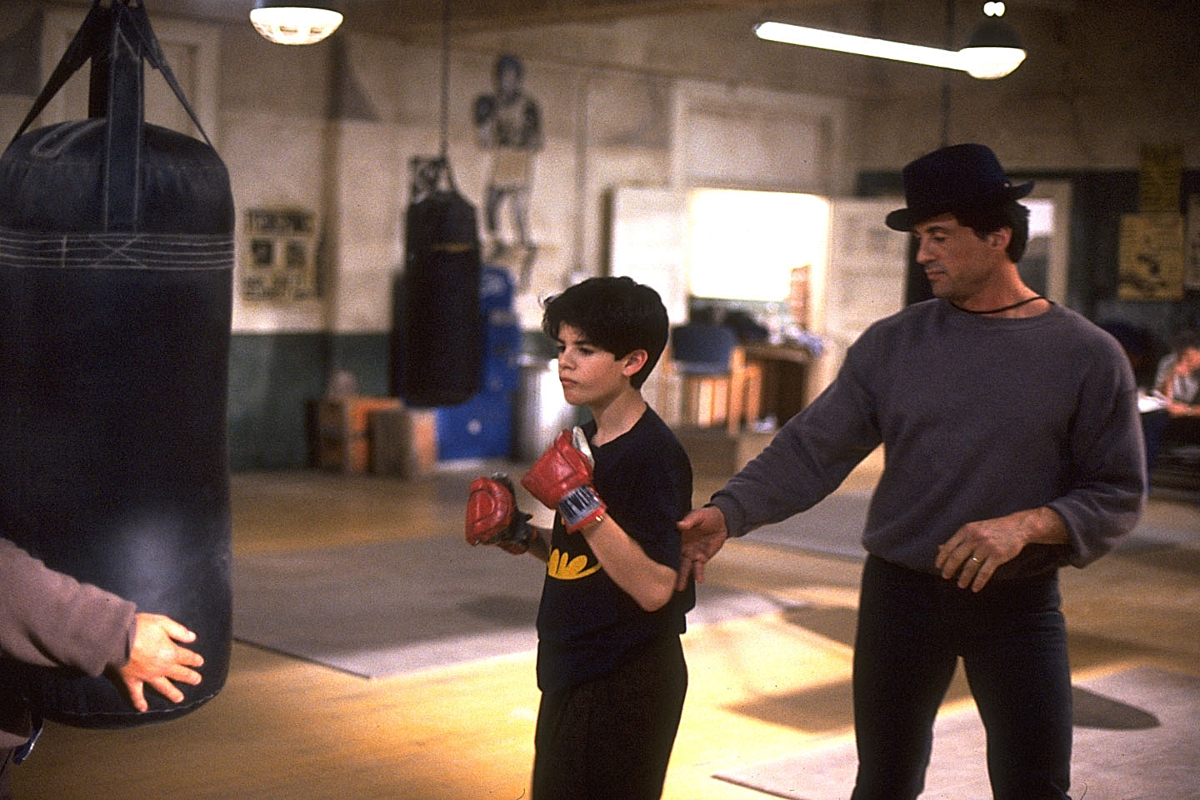
With Rocky V, the franchise, much like its protagonist, starts to show the wear and tear of too many battles. In this chapter, directed by John G. Avildsen, who helmed the original Rocky, Sylvester Stallone’s Rocky Balboa finds himself fighting his most formidable opponent yet: domestic budgeting. After an ill-advised financial decision by his brother-in-law Paulie, Rocky is back where he started: good ol’ Philly, sans the riches but with a brain injury that adds a sad note to his already multiplying troubles.
This time, Rocky hangs up his gloves (doctor’s orders) and dons a mentor’s hat, taking a young, hungry fighter named Tommy Gunn under his bruised wing. Embodying every “rags-to-riches-to-rags” narrative, Tommy quickly forgets who brought him to the dance, leading to a street fight that’s less about boxing and more about teaching young bucks the value of loyalty. Rocky V is a rocky (pun intended) chapter in the saga, where the punches are more emotional than physical, and the real fight is about legacy, family, and not signing power of attorney over to Paulie.
Rocky Balboa (2006)
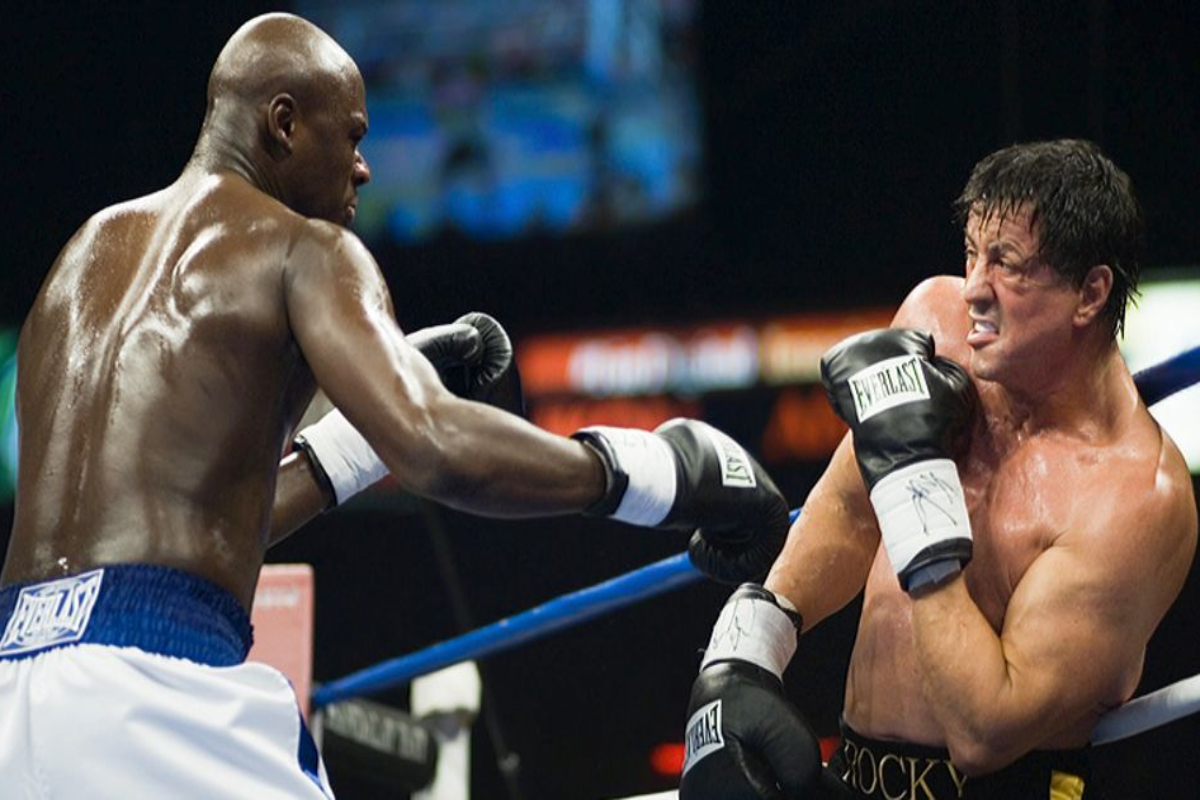
Directed by Sylvester Stallone, Rocky Balboa finds Rocky, now a widower and restaurateur, serving up stories of yesteryear alongside Italian dishes. Rocky’s glory days may seem as distant as a punch-drunk memory, but his fists aren’t ready to hang up their gloves. Then, Mason “The Line” Dixon, a champion boxer with more polish than pugnacity, offers Rocky a chance to prove that old dogs with lethal right hooks can learn new tricks.
Now, Rocky’s training montage, once a symphony of raw eggs and sprinting, includes balancing reading glasses and avoiding pulled muscles. The movie marries modernity with nostalgia, creating a narrative that’s as much about reconciling with the past as it is about defying the limitations of age.
Creed (2015)
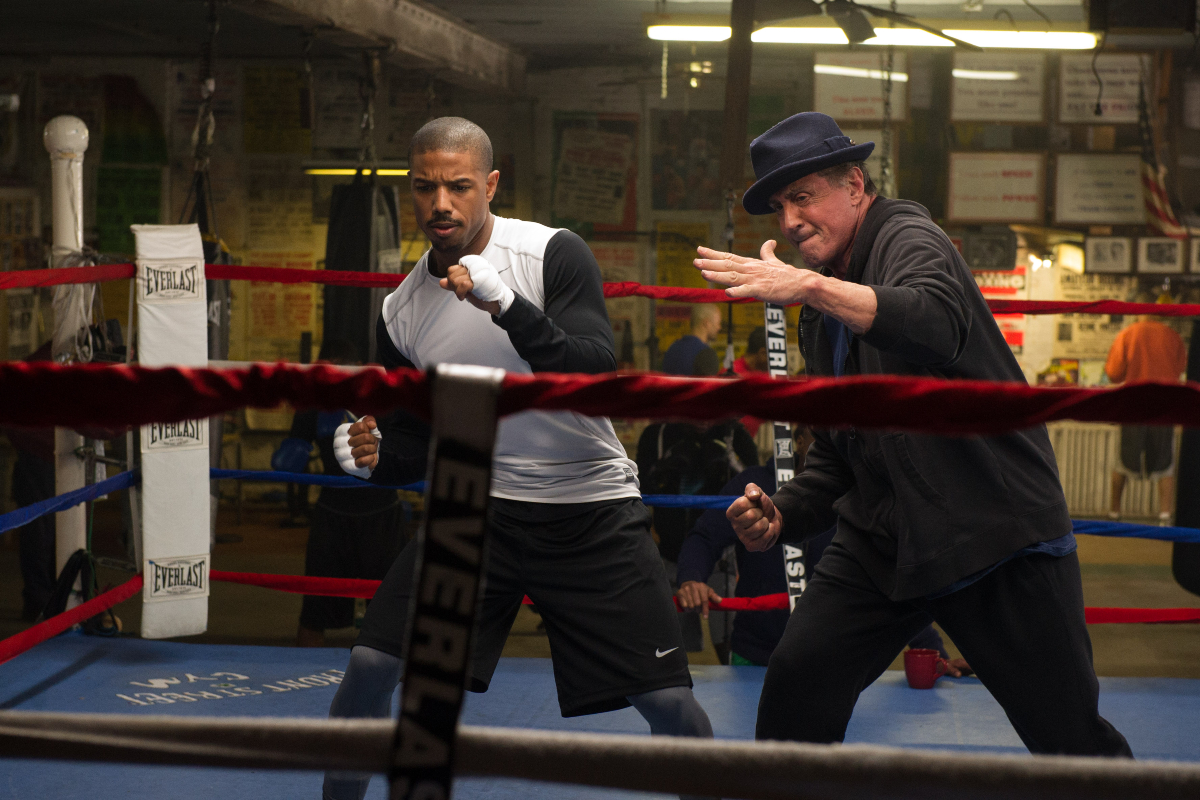
Creed, a spin-off of the Rocky saga, is like a shot of fresh adrenaline to the franchise’s heart. Directed by Ryan Coogler, this film trades in the old guard for the new, focusing on Adonis Creed, a fighter with unresolved daddy issues. Adonis, son of Apollo Creed, seeks to carve his own path in the boxing world, away from the shadow of his legendary father. He’s got muscles, ambition, and a chip on his shoulder the size of a heavyweight belt.
Cue a grizzled, older Rocky Balboa, now more turtle-neck aficionado than a top contender, who becomes Adonis’s reluctant mentor. Creed refreshes the underdog story with new blood and aged wisdom. The film is a balancing act between honoring the legacy of Rocky and establishing Adonis as a fully-formed character who punches first and asks questions later.
Creed II (2018)
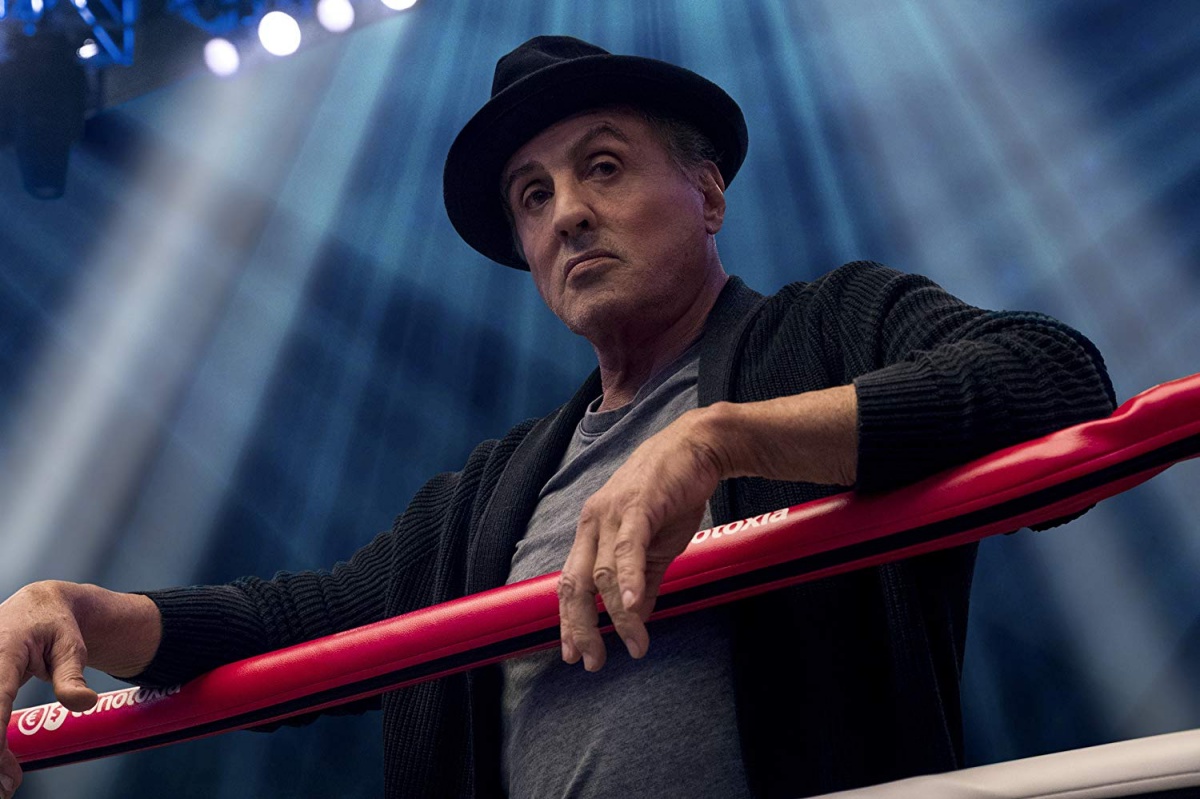
Steven Caple Jr.’s Creed II delves deeper into the boxing world, where the past is as persistent as a left hook, and legacies are heavier than a championship belt. Adonis Creed, still riding high from his name-making bout, faces a new challenger: Viktor Drago, the son of Ivan Drago, the man who killed his father in the ring. The narrative is steeped in a brew of revenge, redemption, and really muscular dudes throwing punches.
Now more than just the son of Apollo, Adonis grapples with the weight of his father’s legacy and his own as a new father. Meanwhile, Rocky Balboa, ever the sage in sweats, dispenses wisdom as potent as his punches once were. Creed II understands that sometimes, to move forward, you have to settle the scores of the past, preferably in a boxing ring with thousands watching.
Creed III (2023)
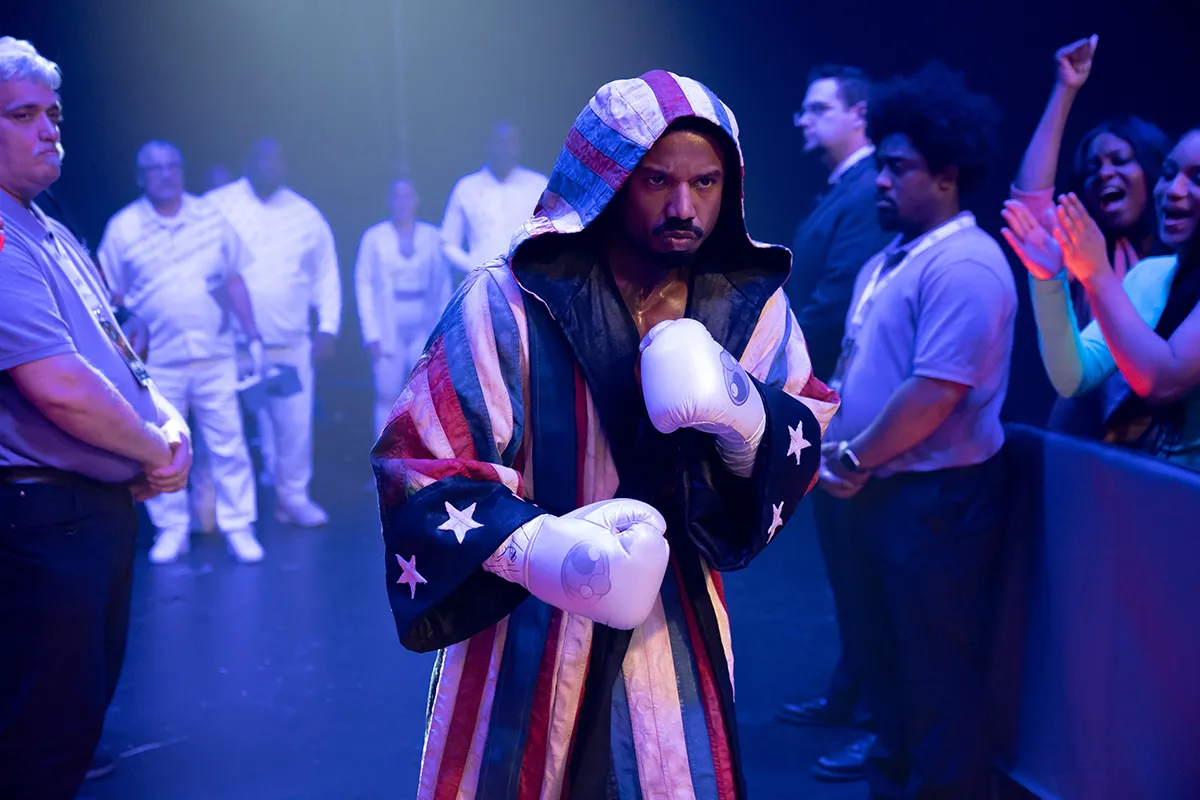
Creed III, the latest installment in the Rocky franchise, is a knockout of a sequel. Michael B. Jordan, back in the role of Adonis Creed, delivers a powerful performance as a man struggling to balance his career, family, and legacy. The film picks up a few years after the events of Creed II, with Adonis having retired from boxing to focus on his family and business.
He’s now a successful entrepreneur and a loving father, but he still can’t shake the feeling that he has more to prove in the ring. That feeling is only heightened when Damian, a childhood friend and former boxing prodigy, resurfaces after serving time in prison. Damian is determined to prove he’s the better fighter, challenging Adonis to a match.
(featured image: Metro-Goldwyn-Mayer)



